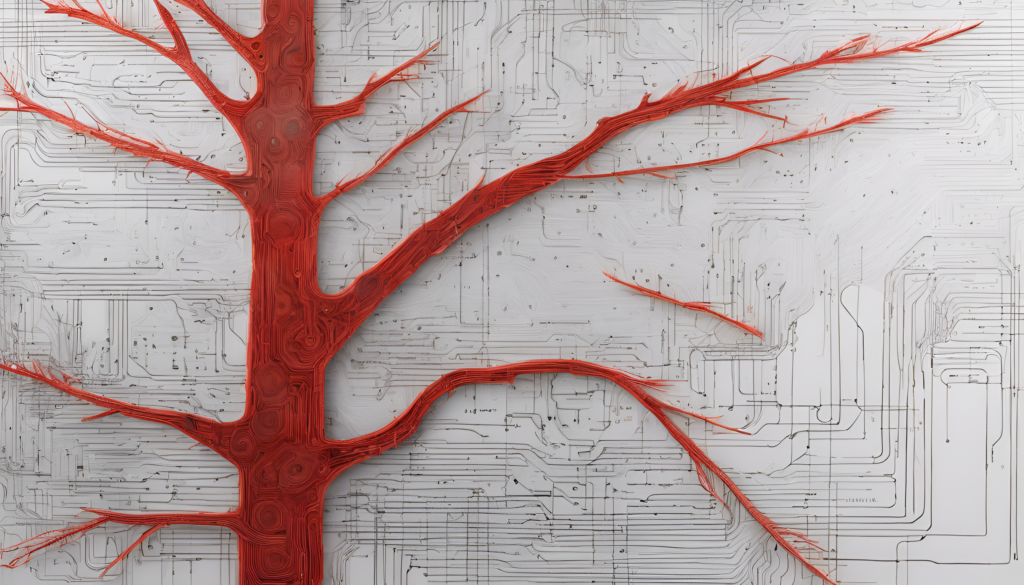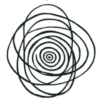Suggestions for Living with Technology

We are living in an era remarkable for its actualization of Arthur C. Clarke’s famous quote, “Any technology sufficiently advanced is indistinguishable from magic.” Living in Texas, I attend Sunday service with my sangha in Olympia, Washington. The Dharma is transmitted to space via vibrations, then reaches my eyes, ears, and heart via a glowing, glass rectangle. I lost touch with a friend from childhood, and for over a decade we didn’t speak. Then, on a social network, we found each other, (he lives in England now!), and we talk and e-mail frequently again. This is amazing, and I am grateful for these gifts!
And yet, equally true, I once heard it said, “Technology is things that almost work,” and it made me laugh bitterly. More and more, our lives are filled with objects and processes that seduce, jostle, demand, and then break when we need (or want) them most. This can feel at best capricious, and at worst, cruel. My phone reception cuts out when I’m on one side of my bedroom, but not the other one. I want help booking a rental car and am only offered an FAQ website that seems to be perpetually offline.
Technology can feel deceptive and manipulative. Tools that promise intuitive interfaces and dramatic efficiencies reveal themselves to be opaque, finicky, and tedious. I call customer service and can’t tell if I’m speaking with an incompetent person or a sophisticated robot. Software I need to do my job can no longer be purchased, only rented indefinitely, and I know my data is being sold to advertisers.
Worse still, there is the sense that instead of it serving us, we are serving it. In the past, ancient peoples used scrying mirrors of polished obsidian to conjure demons. The television writer Charlie Brooker was very clever to name his dystopian science fiction series “Black Mirror.” It’s hard to look around a subway car or airport terminal, see all the downturned glowing faces gazing into their phones and not think that something ominous is being summoned. I have some enthusiasm for the prospect of autonomous vehicles, but considerable antipathy for the suggestions that to make the system work, pedestrians and cyclists will need to wear transmitters at all times. Tactics learned from casinos to keep people gambling were designed into video games over a decade ago, and now they’re used in…well practically everything.
Finally, while the digital world (or the digital’s absorption of the world) can feel delightful or ominous by turns, it is only a completely cloistered life that can avoid it altogether. This sense of inevitability, perhaps, is the most disturbing aspect of all. Each year, more and more objects and interactions have computers at their heart. We are living through a changing era, and it seems to be accelerating. Apps need constant updating, devices need perpetual upgrading, and a sense of mastery or mere familiarity feels ever out of reach. Experts tell us the greatest changes are yet to come (AI! Digital money! Nanotech! Brain implants!) and that we must accept and become skilled with these tools or be ostracized by our society.
When I am calm, I can see the word “technology” for the vast concept it is. Go far enough into the past, and even the most commonplace object was once considered high tech. Anything that emerged from a human mind and was created by human hands is technology. It is only the “almost works” aspect of something that moves it from the banal into the magic (or cursed) circle of “technology” in our minds. Imagine drinking from a clay vessel before kilns had been perfected. “Cup is great in a lot of ways, but it always turns to mush right when you’re giving the Solstice Toast!” Before that even, learning to skillfully knap flint arrowheads must have been very stressful for some people. Wasn’t a sharpened stick good enough? This dual-sided experience of delight and disappointment is as old as ingenuity itself.
Consciously or not, a creator embeds her values in what she creates. This is as true for how a carrot scraper’s handle fits some hands more comfortably than others (“average” sized with all fingers intact, not arthritic) as it is for the most sophisticated software. On a daily basis, we encounter examples of digital technology with many different values and assumptions designed into them. Some of these differ greatly from our own, and some of them align very well. At its root, though, every digital thing shares the same idea: there is great power to be found by simplifying the world. Computer code is fundamentally 1s and 0s. That’s it. On or off, yes or no, this or that.
When a record is played on a turntable, the continuous stream of vibrations emitted is too much information to store easily on a computer (or this was true at one time, at least). If that rich sound is merely approximated, though, it’s possible to reduce it to a manageable size. By removing many tiny snippets all throughout the song, pieces so small most people can’t tell they’re missing, you can create an MP3 file. The song sounds close enough to the original that even if a true aficionado can tell the difference, she forgives the loss because it allows her to store thousands of songs on her phone. For the price of buying one record every six months, she can rent the ability to stream a near infinite catalogue of music from all over the world. Who wouldn’t trade the ungraspable wholeness of reality for that power?
Of course, on some level, we can detect the loss, and that awareness creates either pleasure or pain depending on the context. People with limited physical abilities can control a video game character’s skillful running, leaping and tumbling through space, and the experience is liberating. When I’m fighting with the search feature of my computer, however, trying to find the correct arrangement of the correct words to locate an important file buried in countless nested folders, however, I’m furious. I know that if it were a physical sheet of paper, even one among hundreds in piles on my desk, I’d be able to find it in two minutes. The physical is simply superior in this regard (for me, at least), but the modern economy seems to force me to use a digital system.
On a daily basis, my relationship to technology can vacillate between desperate grasping and bitter frustration. Whether I’m hoping a productivity app can help me manage my time better or learning a new digital tool to make myself more desirable to employers, I’m unconsciously asking technology for salvation. When I curse the developers at Instagram for creating an addictive toy, or vow to put my phone in a wooden box so I won’t tempted to scroll my night away, I’m blaming others for my discomfort. In either case I locate agency outside myself and fail to accept things as they are.
“Technology is things that almost work.” Aren’t we so like that, too? I am nothing if not an inconsistent being. Enlightenment can briefly flicker alive to help me respond generously to a challenging situation. Then, I stumble, judge another, or act selfishly. In my practice, recently, I have begun to work on accepting and loving both my Light and my Shadow equally. I hear a voice in my mind replaying a conversation from work, feeling slighted, and I love that little child, so desperate for approval. I watch my anger rise as I speak about an outrage, growing self-righteous, and I bow to that young man who yearns so deeply for a just world.
Maybe, I’ve begun to wonder, I can approach digital technology with the same spirit. The other day, I was using Zoom to participate in a Sunday service, and the sound kept degrading into static or disappearing altogether. I grew annoyed at the software (you promised me connection!), at my internet provider (what am I paying you for?) and at my Wi-Fi router (I’m only one room away!) Then a thought came. *This zendo is on the other side of the continent.* If I were sitting on a sea cliff enjoying the faint calls of gulls through the roar of the surf, I wouldn’t complain about the atmosphere’s weak ability to transmit sound and the ocean’s inconsideration for interrupting constantly. The whole experience would be the experience, and that would be that. I laughed and enjoyed the rest of the service thoroughly.
Since that moment, I’ve used this perspective many times. Google Drive thwarts my attempts to find a key spreadsheet, and as the curse is about to leave my lips, I stop. “Ah, Google Drive. I accept you as you are.” Watching my screen during a chanting class, a fellow Zoom participant’s face suddenly pixelates, freezes, and turns color. Digital wabi sabi. What a lovely shade of turquoise she’s become. I’m on the phone with my mother and her voice appears and disappears over and over. How closely I must listen, how this keeps me from drifting into distraction and missing each moment. It’s not that I wouldn’t prefer to be having the conversation sitting beside her on a park bench, but the reality is she’s 2,000 miles away. This is what is.
A wise friend recently showed me that in Zen, our rituals are technology. The symbolism encoded in each stick of incense and the capacity of a bow or bell to connect us with the Buddha Way are tools. They’ve been created and refined over centuries, and are as perfectly imperfect as everything else. We trust this technology, though. We accept it as it is, and when we fumble the words of a sutra or a dharma talk doesn’t kindle the insight we’d hoped for, we don’t curse how much money we’ve placed in alms bowls over the years. Taking this wisdom outside the temple could bring many benefits.
The philosopher Bruno Latour has proposed that it was a great misstep of humanity to separate culture from nature. Like the reductionism the digital does to the actual, there has been great power derived from this conceptual divide. Othering all things not human allowed us to exploit it without limit and create a fantasy that human spaces could be free from the constraints that govern everything else. The costs of this fiction have been many, of course, and a reckoning has begun. To heal this divide, Latour proposes a new term: Nature/Culture. Humans are forever a part of the world, beholden to its mysterious ways. We would do well to perceive and treat all things the same.
This is an era of enormous transitions, and we will experience miracles in our time. The legless will walk on electronic limbs, the blind will see with digital eyes, and I sit zazen with my sangha so far away. On the other hand, much is disappearing and much more will be lost. Do not be deceived by imitations that claim to surpass the original. We must refuse, as best we can, the technologies encouraging behaviors that run counter to the flourishing of all beings. There is, and will always be, much to grieve and much to celebrate in turn, over and over, while remembering that the Buddha dances as well in the night as in the day. This life is a bowl, filling and emptying endlessly. What great good fortune to be born a human: aware, discerning, capable, deeply feeling, and humble.
Gassho.

